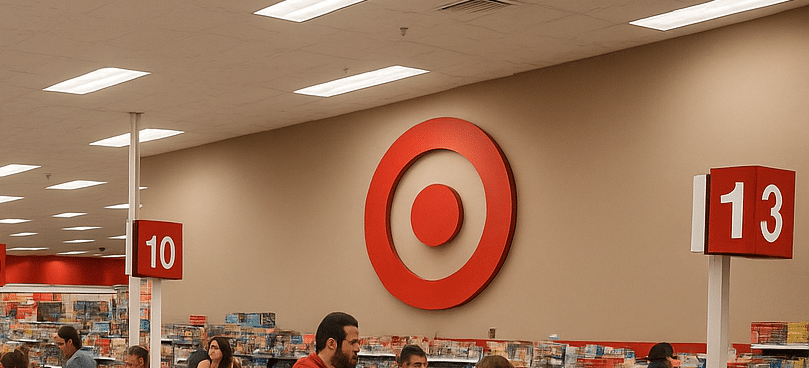
Target is phasing out one of its most consumer-friendly policies. After 12 years of allowing shoppers to match prices from Amazon and Walmart, the retail giant will stop honoring those requests starting July 28.
What’s changing?
Target’s current price match policy, introduced in 2013, allows customers to request a refund if they find a lower price on an identical item at Amazon or Walmart within 14 days of purchase. But under the new policy, Target will only match its own online prices from Target.com—not competitors.
According to a Target spokesperson, the decision comes from internal data showing that “guests overwhelmingly price match Target and not other retailers,” suggesting that shoppers primarily used the policy to match Target’s own promotions or online discounts.
What qualifies for a price match now?
Under the updated policy, Target shoppers can still request a price match if:
- The product is sold and fulfilled by Target or Target.com
- The match is requested at purchase or within 14 days
- The product is identical in brand, size, color, and model number
However, Amazon and Walmart will no longer be eligible sources for a price match—even if the product is the same and sold at a lower price.
Why is Target making the change?
Target has faced sluggish sales and foot traffic over the past year. In its most recent quarterly earnings, released in May 2025, the company reported a nearly 3% year-over-year decline in revenue. CEO Brian Cornell cited an “exceptionally challenging environment,” pointing to declining consumer confidence and tariff-related uncertainty.
This policy shift appears to be part of a broader strategic realignment as Target tries to stabilize margins and improve operational efficiency. Target said the updated approach aligns with “what the rest of the industry does.”
A broader retail trend?
Price matching across retailers has become less common as companies try to protect profit margins. Walmart, for example, only matches prices from its own website—not from competitors. Best Buy and Home Depot still offer some form of price matching, but often with specific limitations.
Industry analysts note that in an inflation-sensitive environment, price guarantees can create margin pressure that some retailers no longer want to absorb—especially with tariffs and supply chain volatility.
How shoppers are reacting
The change has sparked mixed reactions online. Some consumers say they rarely used the policy, while others are disappointed to lose what they viewed as a key advantage of shopping at Target.
Consumer advocates note that shoppers should now double-check prices before purchasing or wait for Target’s own promotions. Apps and browser extensions that track prices may also help identify Target’s internal price drops within the 14-day window.
“Consumers have less room to negotiate pricing now,” said Clark Schultz, retail analyst. “This marks a quiet shift toward tighter pricing controls and away from cross-retailer transparency.”
What happens next?
With price match guarantees narrowing across the board, shoppers may need to adapt their habits. If you frequently relied on Amazon or Walmart comparisons to get a better deal at Target, this policy change will require a new game plan.
Keep an eye on Target’s weekly ads, digital coupons, and in-app promotions—these may now be your best bet for getting top value.

